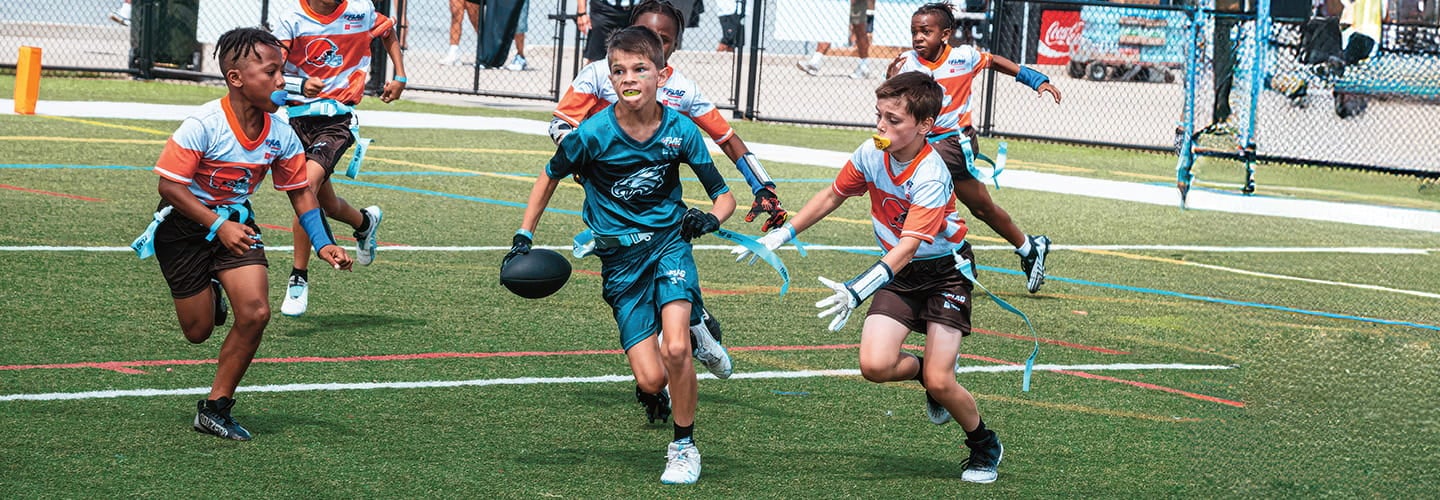Courtesy of family
Cora Hernandez (left) and her sister, Bryn, with their dad and coach, Matt
It was the final play of the championship game. Quarterback Cora Hernandez looked down the field. The 11-year-old was trying to find a teammate who wasn’t covered by an opponent.
“I was really nervous,” Cora recalls. “Everybody’s depending on you to make the right throw at the right time.”
Then Cora threw the ball. The receiver caught it and sprinted into the end zone. Touchdown!
No one even tried to tackle the receiver. Why? This is flag football. Tackling isn’t allowed. Instead, a player pulls a flag from the belt of an opponent with the ball. That stops the play.
Cora is from Tampa, Florida. She plays for the Pirate Bay Krewe. They won the 11U title at the National Football League (NFL) FLAG Championships in July. They’re among the more than 2.4 million kids who play flag football in U.S. leagues.
Far more kids play flag football than tackle football. What does this mean for football in America?
It was the final play of the championship game. Eleven-year-old quarterback Cora Hernandez looked down the field. She searched for a teammate who wasn’t covered by an opponent.
“I was really nervous,” Cora says. “Everybody’s depending on you to make the right throw at the right time.”
Cora threw the ball. The receiver caught it and ran into the end zone. Touchdown!
No one tried to tackle the receiver. Why? This is flag football. Tackling isn’t allowed. Instead, a player pulls a flag from the belt of an opponent with the ball. That stops the play.
Cora is from Tampa, Florida. She plays for the Pirate Bay Krewe. They won the 11U title at the National Football League (NFL) FLAG Championships. Those games were in July. More than 2.4 million kids play flag football in the U.S. Cora and her teammates are among them.
Far more kids play flag football than tackle football. What does this mean for football in America?

